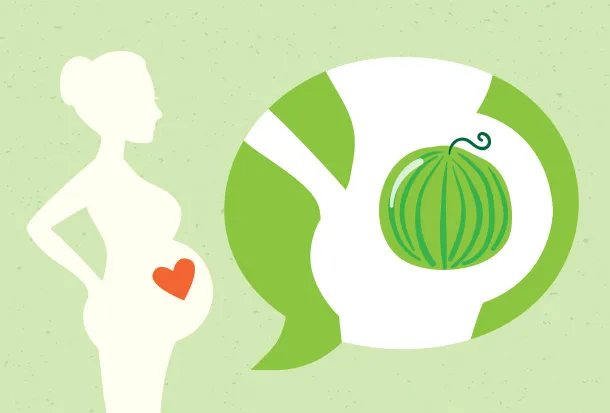The 36th week of pregnancy is one of the most difficult in the entire pregnancy period. The discomfort that plagues a woman is so troublesome that she cannot wait to give birth. Although it is not much longer, the time drags on mercilessly. It is worth knowing how to deal with this.
During this time, changes in the woman’s body are noticeable. The uterus is stretched to the maximum and the baby presses on the abdomen. Many mothers feel the associated discomfort, and even if they are eagerly awaiting the birth of their baby, it is worthwhile to apply a few proven methods to reduce the discomfort of pregnancy.
36th week of pregnancy – which month is it? Third trimester complaints
The 36th week of pregnancy is the beginning of the 9th month and at the same time the 3rd trimester. There is not much time left until the birth. During this time the mother’s abdomen changes. At the moment it is high up, but in the next few weeks it will start to drop. The baby is bigger and changes position, which can cause the mother to have trouble walking – the gait is wobbly and awkward, so it’s worth getting more rest while you prepare to welcome the baby.
At 36 weeks, the bane of the mother-to-be is heartburn. It is caused by the pressure of the baby on the stomach. It is very uncomfortable and prevents the mother from eating a large meal. To relieve the discomfort a little, it is necessary to lie down. Lying on the left side prevents the stomach contents from flowing back into the oesophagus. It is also good to eat properly, this will help you get through this time of waiting for your baby.
This stage of pregnancy is also a time of changes in the circulatory system. Blood vessels become fragile and can burst. For this reason, the expectant mother may have discomfort with her gums, which may even bleed. Nevertheless, it is advisable to brush the gums daily to prevent oral infections. Any infection can lead to premature birth. Delivery is possible in the 36th week of pregnancy, but the baby may need help to breathe.
Haemorrhoids can occur in pregnant women. This is caused by the baby’s increased pressure on the lower part of the body. This condition can be treated with ointments and suppositories that are safe for pregnant women and are highly effective.
At the beginning of the 36th week, the contractions will not be felt as strongly. They can only get worse over the next few days. Your belly will become harder, but this is nothing to worry about.
36 weeks – Baby’s weight and development
In this week of pregnancy, the baby should weigh more than 2.5 kg. If the mother is petite, the weight can be less. The baby will measure almost 45 cm. At this stage, the baby’s hearing is sharpened, especially its response to the mother’s voice, so the mother should talk to it often.
The baby’s nails are also growing. They can be very long and need to be cut after some time, after birth. Special scissors for brittle nails for newborns can be bought in shops. The baby is also in the phase of swallowing the amniotic fluid. It does this to prepare its stomach for digestion outside the mother’s body.
In the 36th week of pregnancy, the baby’s movements can be painful. This is due to its weight and the lack of space in the womb. However, most mothers take this as an unusual sign that their little one will soon be born.
Tests in the 36th week of pregnancy
In the ultrasound, which is carried out in the 36th week of pregnancy, you can see what your long-awaited baby looks like. Such photos are a wonderful keepsake. During the examination, the doctor assesses the baby’s position and checks the results of the tests the mother had done at the previous visit.
A general urine examination is prescribed for pregnant women at practically every consultation. It is necessary to rule out possible gestational diabetes, which is dangerous for the baby. Equally dangerous is the presence of protein in the urine. This can indicate high blood pressure, which is often an indication for hospitalisation or induction of labour. However, mothers should not worry too much, the doctor looking after them will certainly take good care of them and their baby.










